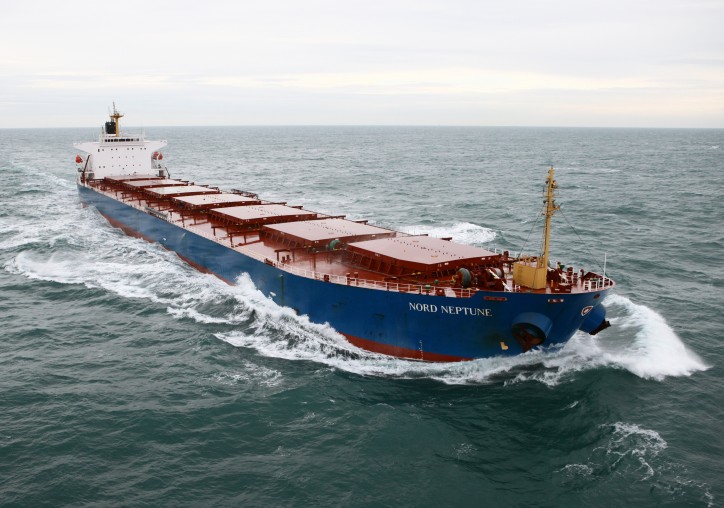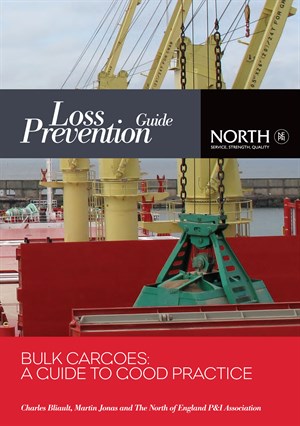The 175 million GT, ‘A’ rated North P&I Club has published a major new guide for the international shipping industry on how to reduce losses when carrying bulk cargoes by sea. The 280-page Bulk Cargoes: A Guide to Good Practice adds to North’s comprehensive portfolio of guidance provided about different cargo types and is the first to be made available in both print and e-book formats.
Bulk Cargoes explains the basic rules to be remembered on every occasion during loading, carriage and unloading of bulk cargoes. It describes where various regulations, recommendations and general guidance can be found, and discusses procedures, preparations and good seamanship practice for appropriate and safe carriage of cargoes in bulk. It also describes the problems and recommended procedures associated with particular types of bulk cargo and sets out the points to be remembered during passage planning and the voyage itself.

Image: NORDEN
North’s director of loss prevention Tony Baker says, ‘The range and amount of cargoes carried in bulk has increased dramatically during recent decades, rising to over 3 billion tonnes a year. They extend from traditional ore, grain and coal cargoes to ever-growing quantities of animal foodstuffs, fertilizers, scrap metal and biofuels.
‘While the vast majority of bulk cargo voyages are completed without incident, there are many occasions when things do not go according to plan. Cargoes with well-known hazards, such as coal, can still cause serious problems. Meanwhile owners and seafarers are also faced with new cargoes like organic grain, which bring new challenges, such as avoiding contamination with any chemicals or non-organic materials.
 ‘The consequences of things going wrong range from routine disputes over hold cleanliness to potentially large claims against ship-owners for cargo shortage or damage and, at worst, total loss of the ship and its crew. The death of 18 crew members on Bulk Jupiter last year following reported liquefaction of a bauxite cargo serves as a stark reminder of the risks bulker operators can face.’
‘The consequences of things going wrong range from routine disputes over hold cleanliness to potentially large claims against ship-owners for cargo shortage or damage and, at worst, total loss of the ship and its crew. The death of 18 crew members on Bulk Jupiter last year following reported liquefaction of a bauxite cargo serves as a stark reminder of the risks bulker operators can face.’
North’s deputy director of loss prevention Colin Gillespie says, ‘Bulk Cargoes seeks to increase the knowledge of seafarers and shore staff on bulk cargo operations and carriage. At North we believe that when those working ashore and on-board have greater knowledge of cargo and operations, they are better placed to exercise vigilance and assess the risk presented by a cargo. It follows that incidents, accidents and claims can then be prevented, which results in more efficient and safer bulk cargo operations for our members.’
Like many of the North’s 15 loss prevention guides, Bulk Cargoes has been co-written with industry experts, in this case Charles Bliault and Martin Jonas of international marine and energy consultancy Brookes Bell Group. Bliault has been a bulk cargo consultant for over 30 years, and Jonas is a consulting scientist specialising in ship cargoes, particularly those that self-heat or liquefy.
Printed copies of the new guide are being distributed to bulk carriers in North’s entered fleet. For the first time members will also soon be able to download e-book versions of the guide, reflecting the club’s commitment to improve access to its extensive archive of loss prevention material. Non-members can also buy copies of Bulk Cargoes and all other titles in North’s loss prevention series from maritime bookshops and online retailers.
Source: www.nepia.com